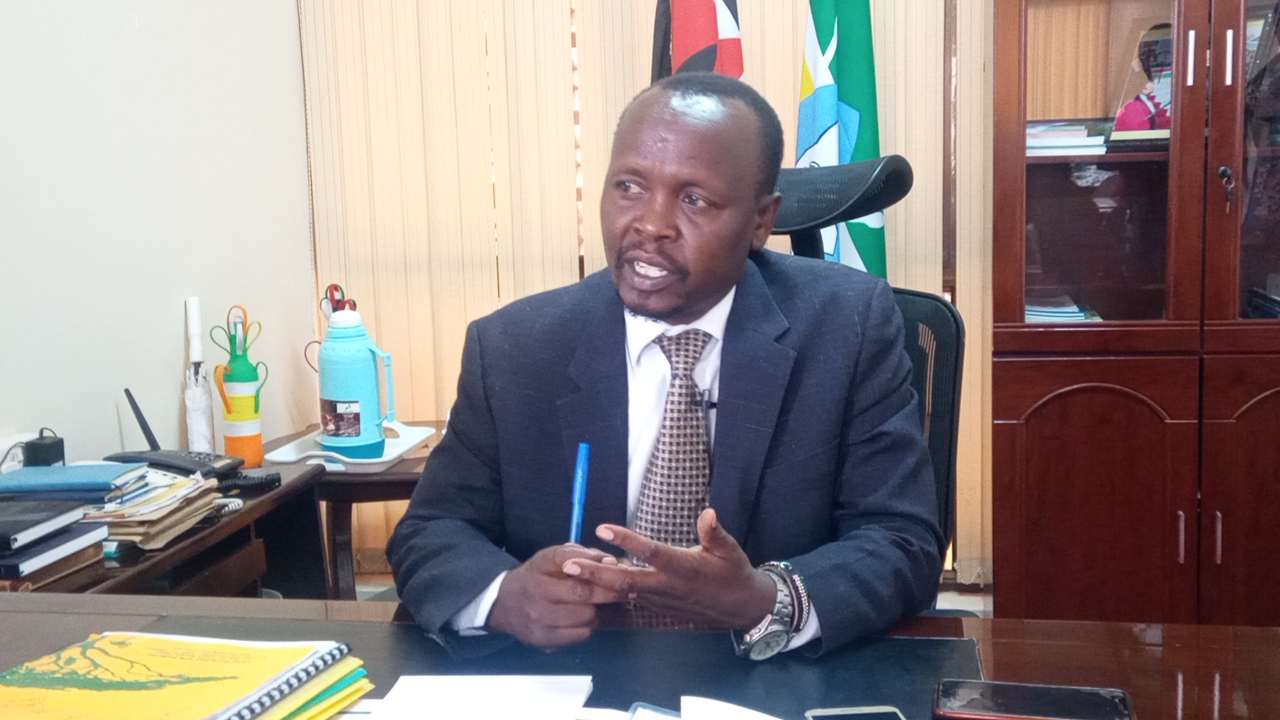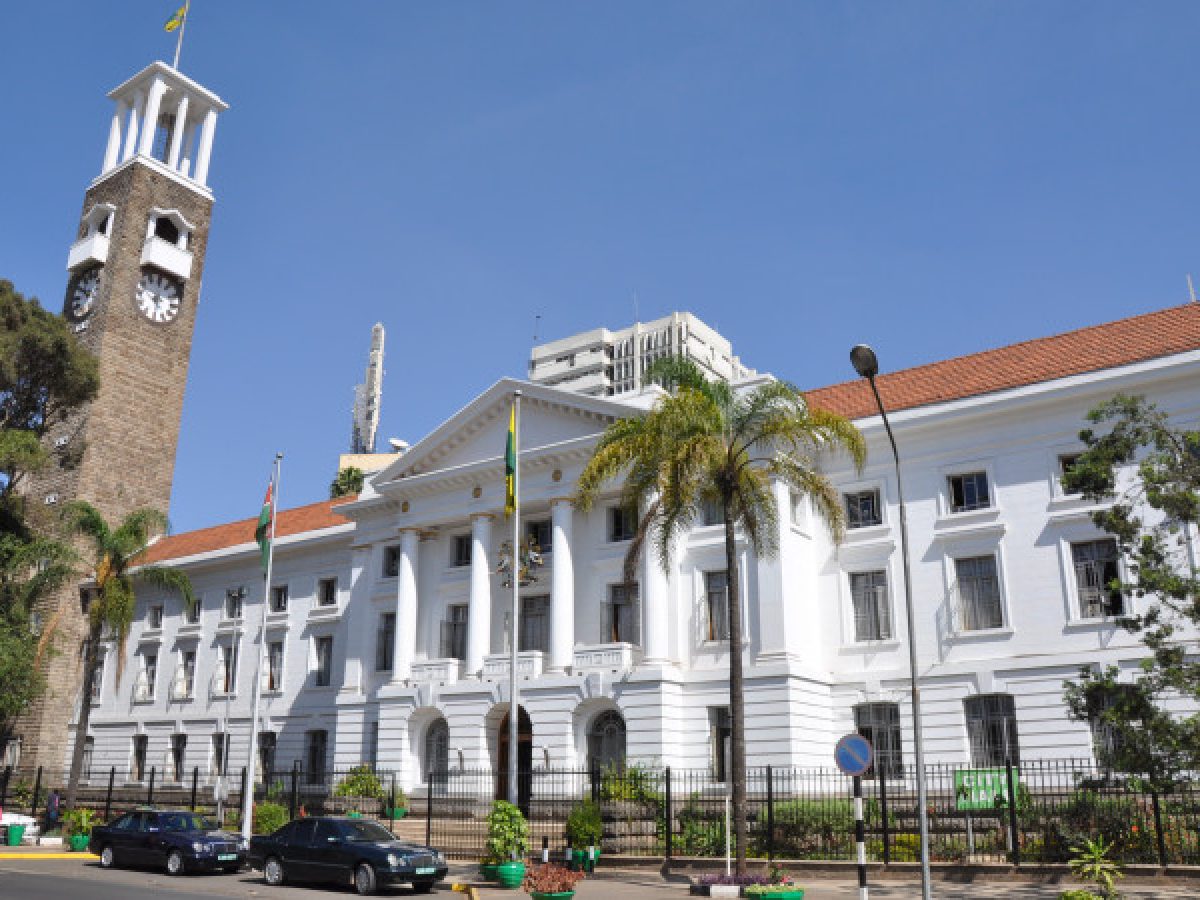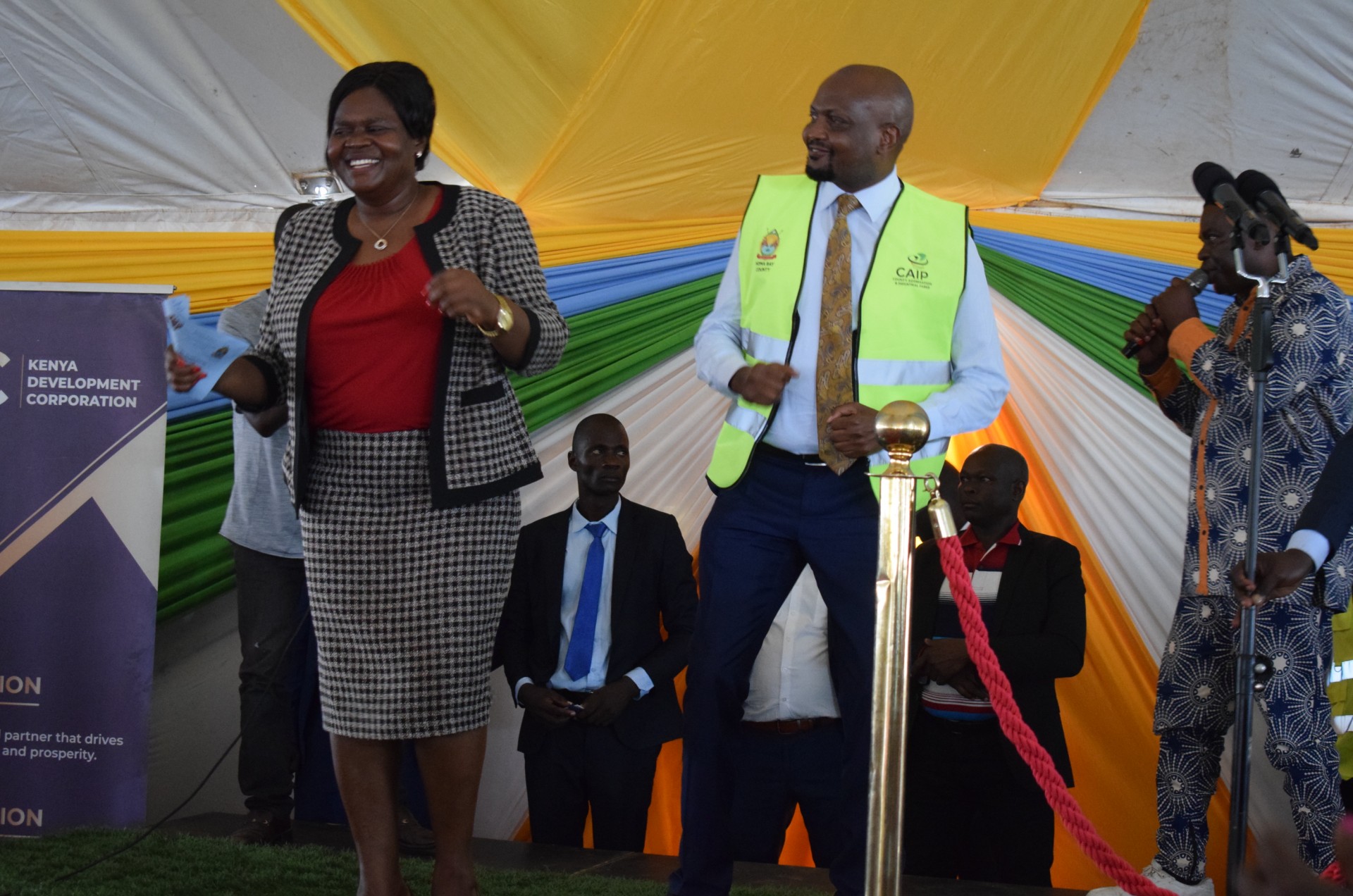Despite the onset of long rains in most parts of the country, an estimated 266,713 people in arid and semi-arid (ASAL) zones of Baringo County are in dire need of food assistance.
The situation has resulted in the deaths of about 3,766 livestock with Tiaty constituency leading with 1,338 followed closely by Baringo South that reported 1,245 deaths due to prolonged drought resulting in total crop failure and pasture.
In the two sub counties, the situation has been aggravated by rampant insecurity which has rendered local residents paupers after marauding armed bandits stole livestock that is their main source of economic livelihood.
According to a weekly drought status report by National Drought Management Authority (NDMA), the county is currently at an alarming stage but the situation is starting to improve owing to rains that have begun to be received in some parts although in small quantities.
“Both pasture and browse conditions are still poor. Although the rains have been received, its impacts are still minimal,” the report indicates.
County NDMA Coordinator Bethuel Wafula stated that the worst hit wards in Tiaty included Loyamorok, Churo/Amaya, Tangulbei, Tirioko, Kolowa, Ribkwo and Silale. In Baringo South, Illchamus, Marigat, Mochongoi and Mukutani while Baringo North has Saimoi Soi, Kipsaraman, Kabartonjo, Barwessa and Bartabwa.
The situation, Wafula says, is worrying with more than 44, 452 households comprising 266,713 people being left desolate and thousands of livestock dying due to lack of fodder and water because several water sources have dried up.
“The situation is getting worse by the day as water points have dried up completely. Families in the wards are also going without food for days to come and if no urgent measures are taken to provide food assistance, many will starve to death,” Wafula points out.
Speaking recently in Marigat NDMA office stores during the disbursement of 3,600 bags of animal products to Tiaty constituency, the coordinator blamed the bad situation and progressive drought to inadequate rains.
“As an institution, we have been able to give out early warning information on time to both National and County governments with other stakeholders putting mitigation measures in place in the region to enable them to prepare well for the dry spell,” Wafula explained.
The NDMA official said that in the months of February and March, Food and Agriculture Organization (FAO) donated 4,500 animal pellets to the county to cushion local livestock farmers from the adverse effects of the drought.
Despite the donation, he noted, vulnerable communities and households continued to suffer.” We have developed our response strategies and towards this end, we have been able to support water tracking in schools and health facilities, where they serve as centres of access to households,” Wafula stated.
For instance, in Baringo South there are 14 critical water and 104 learning facilities at risk while in Tiaty 40 water and 110 schools face bleak situations.
The drought situation in the vast county, the coordinator pointed out, has even forced farmers to make calls to their office appealing for feed for their livestock.
Wafula adds that they have instituted intervention measures to cushion the farmers and households from the impacts of the drought that including distribution of livestock feed supplements, water tracking, repair and rehabilitation of strategic boreholes in Tiaty, improving hygiene and sanitation facilities in Baringo South and restocking of nutrition commodities especially in Tiaty.
“NDMA and FAO have so far given out 3,577 bags of livestock supplements to 2394 households worth Sh17,784,800 in Tiaty, Baringo South, Baringo North, Eldama Ravine and Baringo Central sub counties,” Wafula disclosed.
NDMA, he added, has also reached 4,000 people, 2,000 learners, seven schools and health facilities with water storage tanks of 10,000 litres capacity at an estimated cost of Sh1,950,800.
Wafula revealed that other development partners like Central Rift Valley Water Works Development Agency and Kenya Red Cross Society (KRCS) have also intervened and repaired and rehabilitated 30 strategic boreholes in Tiaty, improved hygiene and sanitation facilities in Baringo South serving 3000 households to the tune of Sh35 million.
“About 8,000 children under-five years, 1,200 pregnant and lactating women in Tiaty constituency have benefitted from a restocking of nutrition commodities programme undertaken by World Food Programme (WFP) at a cost of Sh60 million with Sh 40 million going towards supporting under-fives in Baringo South and North. KRCS has again mounted an integrated medical outreach in 10 sites in the larger Tiaty to the tune of Sh 2.5 million,” the coordinator stated.
Baringo deputy governor Jacob Chepkwony in his address in Kabarnet acknowledged that the situation has deteriorated for the past four months with extremes in Tiaty, Mogotio, Baringo South, North and the lower parts of Baringo Central.
“The county stores which were restocked in January with 1,000 bags of maize and beans are now depleted. We are left anticipating placing our hope on the recent consignment of 500 bags of maize and 300 bags of beans which we hope will at least cushion the situation,” he stated.
Chepkwony who recognized and appreciated the support by NDMA, KRCS, FAO and Central Rift Valley Water Works Development Agency, called on other partners to come forward and lend a hand to arrest the situation before escalating beyond control.
“There is an urgent need for emergency support in the area of water tracking because all the shallow wells, temporary sources and rivers have completely dried up. People are forced to travel long distances in search of the scarce commodity which at times has escalated conflicts between warring communities. The situation especially in Tiaty West and East is dire,” he noted.
Residents complained that market prices for their livestock have dropped drastically as a result of the animals becoming emaciated with a goat that would have fetched between Sh4,000 and Sh6,000 at this time going for around Sh2,000 or less while food prices have hit the roof.
In Tiaty where the drought situation is critical, the harsh weather conditions have forced women to leave their children at night on their own so that they trek to Kerio River to fetch water for drinking and domestic use at times putting their lives at risk.
The shortage of water and pasture has also forced herders to take their livestock further into the field in search of scarce pasture, which has sometimes led to intercommunal conflicts and misunderstanding.
Young children in the interior parts of these ASAL regions are at a greater risk of malnutrition because of severe food shortages coupled with lack of water


